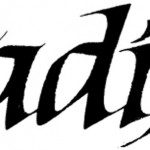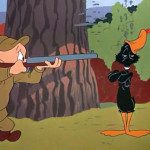My completed novel has a few places with strong vulgarities, F-bombs, and some references that many Christians would consider blasphemous.
So there I was, on the phone with Westbow Press, the self-publishing branch of Thomas Nelson, a major publisher. They wanted almost $3000 to help me get my book published. I was in a learning mode so I was asking questions.
The salesman could smell blood in the water as I asked more and more questions. And for my part, I was contemplating the possibilities and envisioning this last resort to get my book in print.
Then I asked him, “Since you are a branch of Thomas Nelson [a Christian publisher], what is your policy regarding vulgar language?” He said he needed to ask his editor. When he came back on the phone he told me I would need to modify the manuscript to remove all dirty language. I told him that I was not prepared to do that. [BTW, my book is not a Christian book. None of my characters are Christian.]
Have you ever stepped back to consider what bad language is, and why some people do not like to hear foul language?
Perhaps you are one of those people. That is perfectly fine. You simply find certain words inappropriate and react with some degree of discomfort when they are spoken. I have many friends who would say, “I don’t know why the author had to put so much foul language in the book/movie. It’s probably just to get more sales because that’s what people want to hear.”
They find the use of vulgar words gratuitous, pandering to the lowest appetites of the masses, or worse, a violation of Bible passages that seem to proscribe filthy language. These friends of mine can get miffed or downright angry at the presence of these words, and they might avoid films with a reputation for excessive language.
I have two things to say about foul language, and I may revisit this subject in a future post.
First, all words that are considered vulgar, foul or dirty are only deemed that way because society deems them that way. Vulgar language almost always has to do with matter of sexuality or toilet. In politer times in Western civilization, society was stratified. There was upper class and lower class. Talk of sex and toilet was considered unmentionable in polite society. Euphemisms existed even in Bible times to veil references to “privates,” such as male genitalia being referred to as “feet” or the “grasshopper” in Ecclesiastes.
However, language changes. The word “piss” is considered crass today, but the word appears in the original 1611 King James Bible, where it describes a man as “he who pisseth against the wall.” Words that used to be considered acceptable grow in their taboo factor. And, as we all know today, many words that used to be unspeakable are showing up more and more on prime time TV.
This is merely evidence of the megatrend that is inseparable from the democratic ethos, that is, the decline of formality. Fewer suits and ties being worn to work. When I was a kid, you wore “nice” clothes on an airplane. Not any more. Another case in point is what most kids wear to school today vs 50 years ago. What people wear to funerals and weddings. Table manners. Street conversation. Chivalrous gestures by men toward women. The appearance of toilet humor in children’s movies every since Shrek. Remember the baby octopus farting black ink in Finding Nemo? Lemon-flavored snow cones in Monsters Inc? Stinky Pete farting in his packaging in Toy Story 2?
And language. People are noticing that it is OK to say feces, but not the S word. It’s OK to say coitus or sexual intercourse, but not the F word. In fact, just about every word you can think of has a cleaned-up, technical form that is OK to speak in most places. Why is this?
It is merely social convention. The Bible doesn’t list the English words that are forbidden or considered obscene. So if you find a word offensive, God bless you, it is because your sensibilities have been formed by lingering social norms – norms which are rapidly falling away. I’m not necessarily happy about this, I’m just saying, this is the way it is.
I hope someone finds this clarification helpful. That’s why I’m writing this.
The second thing that would be helpful in this discussion is to distinguish between vulgarity, profanity and abusive speech.
- Vulgarity or speaking what is “vulgar.” The word vulgar means common. Vulgar language is common street language, not the language of upper class society, but of blacksmiths and such. Again, this goes back to the time when social class was much more a factor in the western, especially British influenced, world. But in this sense, most of us are of the “vulgar class” because we do not HAVE social classes anymore. Scruples about vulgar words are leftover conventions from a pre-democratic age. I take vulgar words to be references to sex and toilet, failing to use euphemisms for these topics like the upper class types do. This also includes terms for body parts involved in sex and toilet.
- Profanity. To “profane” something means to be irreverent, to blaspheme. It applies only to sacred things, and means to bring dishonor to that which should be held high. Again, this is also a case where “class” is involved. Sacred things are considered to be in a sort of higher class, and traditional sensibilities are offended when the holy or sacred is spoken of without due reverence. Perhaps the most obvious candidates for this category are the use of “Jesus”, “Christ”, and “God” in careless or casual ways. But it would also include any denigration of holy thing like the ark of the covenant or the elements of the Eucharist.
- Abusive speech. To abuse with speech is basically to insult someone. Calling someone a bastard or a son of a bitch, or any other insult is abusive. But we should distinguish this from saying “shit” when you hit your thumb with a hammer.
So Westbow Press and Thomas Nelson publishing. When I use such language in my writing, it is not that I haven’t given it a lot of thought. My use of such a language is not gratuitous. It is appropriate to the characters and situations of the story.
That’s all I have for now. But I hope that as you read books or watch films with foul language, you will parse the words with a rubric such as this one to bring some order to the chaos.






